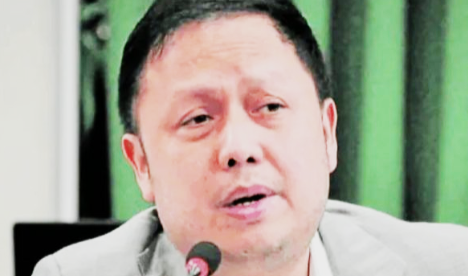
LEONEN TO CONGRESS: DON'T ACT AS IF YOU ARE A JUDGE OR PROSECUTOR IN CONDUCTING LEGISLATIVE INQUIRIES
In a recent concurring opinion, Senior Associate Justice Marvic Leonen made a critical observation concerning Congress's role in conducting legislative inquiries. He cautioned legislators against adopting the demeanor of judges or prosecutors during these investigations. This warning transcends mere legal technicalities; it serves as an essential reminder of the principles of separation of powers and the distinct responsibilities assigned to each branch of government.
When Congress undertakes inquiries, it is imperative to acknowledge that it is not a judicial body. The primary objective should be to gather information that will inform the legislative process, rather than to adjudicate questions of guilt or innocence. Leonen underscores that the fundamental aim of these inquiries should be to comprehend the issues and challenges facing the nation, thereby enabling lawmakers to craft effective legislation that addresses these concerns. Such an approach transforms inquiries from superficial political events into substantive efforts directed toward public welfare.
By conflating legislative and judicial functions, Congress jeopardizes its credibility and the trust that citizens place in it. This blurring of lines paves the way for investigations to devolve into show trials, where individuals are summoned not solely to provide information but are also subjected to public scrutiny. Such scenarios risk vilifying individuals instead of concentrating on the pertinent issues and may create a chilling effect, deterring potential witnesses from coming forward to share their insights due to fear of being treated as adversaries rather than contributors to a democratic dialogue.
Leonen’s admonition acts as a clarion call. Legislators should assume the role of facilitators of discourse rather than inquisitors. While the conduct of inquiries should indeed be vigorous, their focus should be on gathering facts that inform legislative action, rather than seeking to punish or discredit individuals who may express dissenting opinions.
In this era of heightened political polarization, treating inquiries as judicial proceedings can exacerbate tensions between parties rather than foster reconciliation. As lawmakers engage in these investigations, they must remain cognizant of their ultimate responsibility to enact laws that advance the common good, rather than to position themselves as judges or jurors.
3 Comments

John Doe 01 Jan 2045
Diam amet duo labore stet elitr invidunt ea clita ipsum voluptua, tempor labore accusam ipsum et no at. Kasd diam tempor rebum magna dolores sed sed eirmod ipsum.

John Doe 01 Jan 2045
Diam amet duo labore stet elitr invidunt ea clita ipsum voluptua, tempor labore accusam ipsum et no at. Kasd diam tempor rebum magna dolores sed sed eirmod ipsum.

John Doe 01 Jan 2045
Diam amet duo labore stet elitr invidunt ea clita ipsum voluptua, tempor labore accusam ipsum et no at. Kasd diam tempor rebum magna dolores sed sed eirmod ipsum.




.png)
.png)
.png)


.png)
.png)
.png)